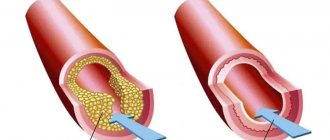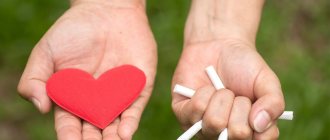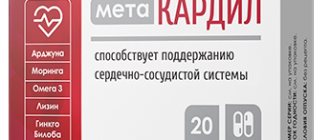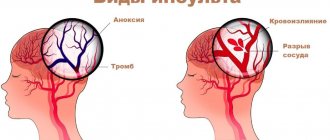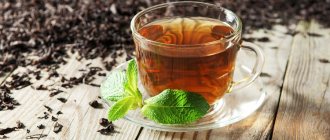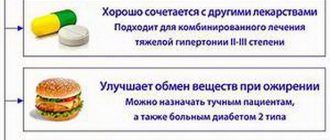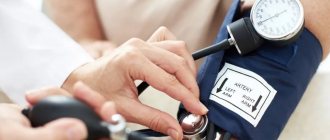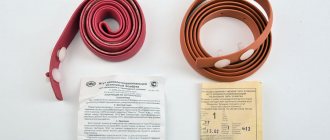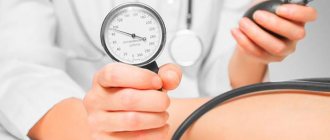Hypertension is a disease that has no gender, age, or special conditions for development. Often the disease is diagnosed in the second or third stage, when treatment becomes lengthy and difficult. In the early stages, the disease shows little effect, and pressure surges go unnoticed. A blood pressure of 200 over 100 is a serious pathology that requires immediate medical attention. It is almost impossible to independently stabilize the condition with such high arterial values, but you can improve the patient’s well-being if you provide him with first aid correctly.
What does pressure 200/100 mean and why is it dangerous?
High blood pressure of 200 over 100 has a bad effect on internal organs and human vital systems.
- When arterial values are 200 to 100, the vascular lumen narrows. This leads to brain hypoxia. Lack of oxygen provokes acute cerebrovascular accident, which is life-threatening.
- The higher the arterial values, the more the blood vessels have to strain. This leads to their thinning, wear, and loss of elasticity. Cholesterol plaques are deposited on the vascular walls. The heart does not have enough nutrition, which leads to severe angina. If the patient is not provided with timely medical care, this condition can lead to a heart attack.
- When the pressure is 200 to 100, the urinary system suffers. First of all, the kidneys are negatively affected. They can't handle filtering. Protein and other minerals appear in the urine from the bloodstream. If the patient's condition is not stabilized, kidney failure or complete kidney failure may develop.
- With elevated blood levels, intraocular pressure often increases. The blood vessels of the eyes cannot withstand the high load, and the retina suffers. Changes in the retina of the eyes lead to deterioration or complete loss of vision.
High rates of 200 to 100 are a sign of a hypertensive crisis. This is an acute condition that may be accompanied by shortness of breath, bouts of vomiting, difficulty defecating or diarrhea, causeless fear, and nervous agitation. A hypertensive crisis often leads to a heart attack or swelling of the brain.
One of the dangerous forms of hypertensive crisis is edematous. This condition is characterized by weakness, the appearance of severe swelling of the face and hands, unreasonable strong fear, convulsive seizures, loss of consciousness and dizziness. An edematous hypertensive crisis can lead to atherosclerotic vascular destruction and angina pectoris. Target organs are affected: brain, heart, kidneys, eyes, blood vessels.
Indicators of 200 to 100 are critical. You should call an ambulance!
Symptoms of high blood pressure
A person's blood pressure is 200/100 and is rarely asymptomatic. Changes in well-being at a pressure of 200 to 100 are especially acute in an elderly person.
If elevated blood levels persist for a long time, the speed of blood circulation changes, the vascular walls thicken, and the lumen becomes narrower. This condition leads to the appearance of characteristic symptomatic signs:
- throbbing pain in the back of the head and temples;
- impaired visual function, pathology of the fundus, dilatation of blood vessels in the eyes;
- lethargy and loss of strength even after prolonged sleep;
- tinnitus;
- increased heart rate;
- chest pain;
- generalized edema;
- hyperemia;
- memory disorder;
- numbness of hands and feet;
- hyperhidrosis;
- urinary incontinence;
- the appearance of protein in the urine;
- hypertensive crisis.
Throbbing pain in the temples may be a symptom of very high blood pressure
Causes and provoking factors
Blood pressure does not rise to 200/100 for no apparent reason. To carry out comprehensive treatment, the doctor must determine the cause of high blood counts. The success of antihypertensive therapy depends on this.
The main reasons for pressure 200 to 100:
- excessive production of thyroid hormones;
- toxicosis in the third trimester in a pregnant woman;
- excessive consumption of alcoholic beverages;
- local narrowing of the aorta;
- adrenal cancer, which provokes the release of adrenaline;
- constant use of hormone-containing medications, psychotropic medications, drugs;
- overweight, obesity;
- smoking;
- poor diet, consumption of junk food;
- strong and frequent exposure to stress, constant conflicts, excitement, anxiety;
- lack of sufficient physical activity;
- lack of adequate sleep and rest (less than 8 hours a day);
- genetic predisposition.
Increased blood pressure in old age is a natural and irreversible process. With age, all organs and vital systems work worse due to wear and tear. Vessels lose elasticity, and rapid blood flow damages thin vascular walls. Vessel aneurysm leads to lengthening of the vessels. They become thinner and tear.
Men are susceptible to an increase in blood counts up to 200 per 100 mmHg. more women. In women, the body produces estrogen, which protects against the development of hypertension. Women suffer from high rates during menopause, pregnancy, and hormonal age-related changes.
With advanced hypertension, it is necessary to regularly monitor blood counts, take measurements twice a day, establish proper nutrition, get rid of bad habits, regularly do gymnastics, and walk in the fresh air. Your attending physician will provide individual recommendations for lifestyle correction.
The causes of very high blood pressure largely depend on a person’s lifestyle
Norms
Many people believe that 120/80 is considered normal. But these numbers are subjective. Only with regular measurements will it be possible to determine which indicators are normal. Blood pressure differs not only between adults and children, but also among people of the same age. The standards are presented in the table.
| Age, years | Indicators for women | Indicators for men |
| Up to 20 | 116/72 | 123/76 |
| 20-30 | 120/75 | 126/79 |
| 30-40 | 127/80 | 129/81 |
| 40-50 | 137/84 | 135/83 |
| 50-60 | 144/85 | 142/85 |
| Up to 70 or more | 159/85 | 142/80 |
The older a person is, the higher the normal blood pressure. This is due to the fact that age-related changes occur in the condition of blood vessels and the cardiac system. Deviations indicate disturbances in the body. Both high and low blood pressure can cause pathology. In these cases, the help of a doctor is required.
What to do with a blood pressure of 200/100 - emergency care algorithm
If the patient shows signs of a hypertensive crisis, it is necessary to call an ambulance, and before the doctors arrive, provide the patient with emergency care.
First aid for high blood pressure:
- lay the patient on a horizontal surface, raising his head slightly;
- reduce his physical activity;
- open a window or vent to let fresh air into the room;
- give the patient an antihypertensive drug that was previously prescribed to him by the attending physician;
- if severe pain in the head occurs, you can give a diuretic, which will lower blood counts and stop an attack of pain;
- 15 minutes after the measures taken, it is necessary to re-measure arterial parameters.
Pressure during a hypertensive crisis must be reduced gradually. A sharp decrease in blood levels can provoke cardiac dysfunction.
Folk recipes
Decoctions and infusions of herbs, berries, vegetables, and fruits are auxiliary remedies for high blood pressure. The rich chemical composition helps enrich the body with vitamins, micro- and macroelements, acids, flavonoids and other valuable components.
Under their influence, the immune system is strengthened, resistance to diseases increases, the heart muscle and blood vessels are strengthened, the blood thins, and the concentration of bad cholesterol decreases.
The best recipes are:
- You need to make a collection based on the components listed below. It is stored in a dry place. Take 2 tbsp. l. dried berries, chamomile, periwinkle, hawthorn fruits, dried viburnum berries. Everything is crushed and filled with hot water (2 cups). Stand until cool. After this, the infusion should be filtered and taken 3-4 times during the day, 100 ml each.
- Hibiscus tea is excellent for lowering blood pressure. It should be brewed in 1-2 tbsp. l. in hot water (1 cup). The product is infused for 5-7 minutes. Then you can add sugar, honey or lemon.
- The head of garlic is kneaded until a paste forms. Then pour 1 liter of boiling water, close the lid and put it in a dark place for 3 days. The product is taken morning and evening, 50 ml.
- Dry valerian root (20 g) is chopped with a knife, filled with medical alcohol (100 ml) no more than 70%. It is advisable to prepare the product in a dark glass container. After a week, the tincture is ready. You need to take it 20-40 drops with water.
Folk remedies have a positive effect on the condition of a person suffering from high blood pressure. But before using them, it is better to consult a doctor.
Further treatment of hypertension
Upon arrival of the ambulance team, it is necessary to tell the paramedic about all the symptoms, changes in arterial parameters, and the possible cause of the development of the pathological condition. The specialist decides on the possibility of outpatient treatment or hospitalization.
During outpatient therapy, the patient’s condition is stabilized, and then a visit to a cardiologist and neurologist is scheduled. The selection of a treatment regimen is carried out individually according to indications, taking into account gender, age, characteristics of the body, and pathogenesis. The outcome of the disease depends on the correct therapy.
To bring the blood pressure down to 200/100 and normalize the condition, the doctor prescribes antihypertensive drugs from different pharmacological groups:
- diuretics - Veroshpiron, Hydrochlorothiazide, Spironolactone, Furosemide tablets: they remove excess water from the body, relieve swelling, improve kidney filtration;
- alpha-blockers - Alfuzosin, Doxazosin: used to quickly reduce blood counts;
- beta-blockers - Carvedilol, Metoprolol, Propranolol: stabilize blood pressure, restore an even heartbeat, stabilize the pulse;
- angiotensin-converting enzyme inhibitors - Capoten, Captopril, Ramipril, Enalapril: reduce the production of the enzyme angiotensin 2, which dilates blood vessels, thereby increasing blood pressure;
- antihypertensive tablets – Amlodipine, Verapamil, Nifedipine: vasodilators, muscle relaxants;
- medications that lower cholesterol production - Atorvastatin, Zovastikor;
- anticoagulants – Aspecard, Cardiomagnyl.
Elevated blood counts of 200 to 100 cannot be ignored. Lack of timely medical care can lead to irreversible serious complications, including death.
Medicines for high blood pressure can only be taken as prescribed by a doctor.
How to prevent blood pressure surges
Prevention of hypertension is primarily a lifestyle correction. To prevent an increase in blood pressure to 200/120, adherence to the following recommendations:
- Refrain from smoking and drinking alcohol;
- Control your emotions, avoid conflicts and stressful situations;
- Eat right, excluding pickles, smoked meats, canned food, animal fats, and fast food from your diet;
- Give the body moderate physical activity (walking, swimming, breathing exercises).
Blood pressure 200/120 indicates an advanced form of hypertension. However, competent treatment and rehabilitation will stabilize the tonometer readings, avoid the development of adverse complications, improve the quality of life and increase its duration!
Home remedies against high blood pressure
You can reduce blood pressure by 200/100 using traditional medicine, which is based on the consumption of certain products or herbal infusions. Herbal treatment rarely leads to severe side effects, but before using a traditional method of treating hypertension, you should consult a doctor.
The most popular ways to quickly reduce blood pressure at home:
- mustard plasters: it is necessary to place mustard plasters on the back of the neck, calves, shoulders; mustard plasters are kept for 15-20 minutes and then removed; this time is enough to dilate blood vessels, improve blood flow and lower blood pressure;
- vinegar: rub the feet, temporal and occipital areas with a five percent vinegar solution; you can make a vinegar compress, which is kept for no more than 20 minutes;
- fresh herbal tea: freshly brewed weak tea with honey and lemon is good for lowering blood counts; you can make a warm berry fruit drink with honey and lemon.
Often blood pressure rises due to lack of fluid in the body. Doctors recommend drinking at least 2 liters of clean water a day. Water makes the blood thinner, reduces the formation of cholesterol plaques, and improves the functioning of blood vessels.
If you have hypertension, you should not self-medicate. High blood counts of 200 over 100 require medical intervention.
